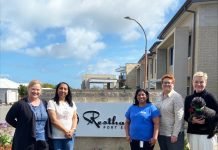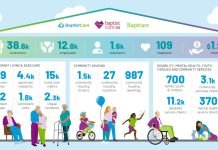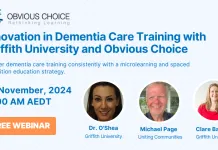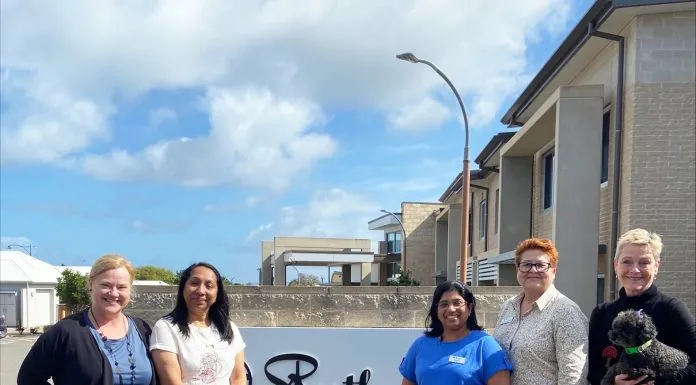In this post, we feature Bolton Clarke, winner of the Health & Wellbeing category in the 2024 Future of Ageing Awards. Results were unveiled at a presentation dinner in Sydney on August 29…To view all of the winners…
Bolton Clarke’s Montclaire Aged Care Home in Brighton, Victoria, has established a pioneering STEM (Science, Technology, Engineering, and Mathematics) program for residents eager to continue learning.
The program is designed to cater to residents with backgrounds in scientific and engineering fields, enabling them to share skills, explore new technologies, and reconnect with past expertise. Inspired by elements of the Victorian Year 12 curriculum, the program includes hands-on activities such as learning 3D printing, making bottle cannons, building a human heart model, propagating seeds, visiting the Melbourne Anaesthetic Museum, and engaging in conversations with an AI robot.
Why it came about
Research highlights the benefits of lifelong learning and active engagement on cognitive function, health, and overall well-being in older adults.
Developed by Lifestyle Coordinator Julie Roppola, the Montclaire STEM program aims to meet these needs by providing a unique opportunity for residents to revisit former knowledge, acquire new skills, and build connections. Recognising that traditional activities did not fully engage all residents—particularly men from scientific and technical backgrounds—the program offers an alternative focused on learning and intellectual stimulation.
Julie explains, “We have so many intelligent people in the home: pilots, engineers, doctors with a PhD. It made sense to help them revisit their previous fields, spark curiosity, and learn together.”
Julie Roppola and Catherine Doyle, Group Lifestyle Services Manager, presented a session at the 2024 Future of Ageing conference to do with the outcomes being achieved through this program. A video of the session can be obtained here.
How it works
The program is structured around topics incorporating elements of the Victorian Year 12 curriculum, with themes ranging from physics and biology to food chemistry. Activities have included 3D printing at the Brighton Library, engineering experiments like bottle cannons, building biological models, and visiting local sites such as farms, museums, and airports. Guest speakers and experts from related fields have also visited, creating a broader community connection.
One resident, a former pilot, is currently studying to regain his solo flying license, a testament to how the program reignites past passions. The lifestyle calendar runs independently, enabling residents to choose STEM sessions that align with their interests.

A central feature of the program is ABI, a 120 cm humanoid robot developed through collaboration between Bolton Clarke and Andromeda. ABI engages residents in lively discussions about AI and emerging technologies, making learning interactive.
Designed with input from animation studios such as Pixar and DreamWorks, ABI offers a dynamic and empathetic interaction experience, tailored for aged care settings.
According to Thena Johnstone, Bolton Clarke’s National Pathways Manager, “The impact on residents is to stimulate curiosity and engagement. The response to ABI has been heartwarming, with residents forming connections and enjoying shared laughter.”
Who was involved?
• Montclaire Lifestyle Team – spearheaded program design and resident engagement
• Andromeda – developed the ABI humanoid robot and facilitated AI learning experiences
• Brighton Public Library – provided access to 3D printing resources and support
Evidence of success
The success of the STEM program has led Montclaire to establish a dedicated STEM calendar, offering practical activities, seminars, and field trips. Residents who had previously not engaged in typical social activities now actively participate, with topics like engineering and agriculture drawing particular interest. Testimonials reflect the program’s positive impact:
“I love learning and experimenting; I enjoyed science at school, so this has been a real pleasure.”
Haydn
“As a former pilot, I know the value of learning. This program keeps me engaged and gives me purpose.”
Tom
“I’ve always enjoyed science and technology. This program allows us to use our knowledge and not let it go to waste.”
Matthew
Bolton Clarke’s Montclaire STEM Program exemplifies how aged care settings can foster lifelong learning and cognitive engagement. By creating opportunities for intellectual stimulation, the program not only enhances residents’ quality of life but also reinvigorates a sense of accomplishment and community.










